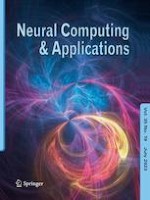20-03-2023 | Original Article
Group learning algorithm: a new metaheuristic algorithm
Published in: Neural Computing and Applications | Issue 19/2023
Log inActivate our intelligent search to find suitable subject content or patents.
Select sections of text to find matching patents with Artificial Intelligence. powered by
Select sections of text to find additional relevant content using AI-assisted search. powered by
